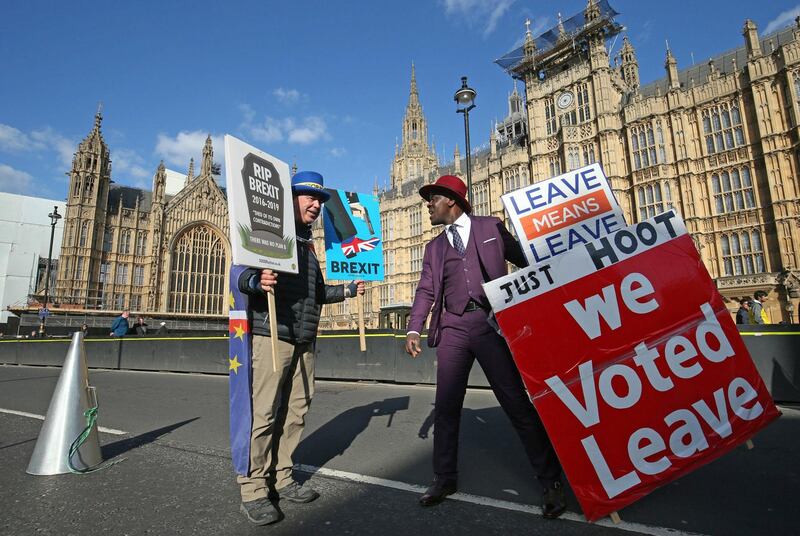Prime Minister Theresa May has accepted her Brexit deal still lacks enough support to allow a vote in parliament that would set Britain on course to leave the EU at the end of May.
She said she would continue to reach out to MPs to build enough backing to push through her plan for leaving the European Union only days after Britain was granted an extension to leaving the bloc.
“It is with great regret that I have had to conclude. As thing stand there is still not sufficient support to bring back the deal for a third meaningful vote,” she told parliament.
Mrs May was forced to ask the EU to delay Brexit from March 29 when it became clear her deal would be humiliatingly rejected for the third time this year.
If parliament finally backs the withdrawal agreement, Britain will leave the EU by 22 May. If it once again refuses to do so, the government will be forced to “indicate a way forward” on April 12 or possible stumble out the EU without a deal. This could mean a longer extension or 'Slow Brexit' that would mean preparing for European elections.
On Monday, opposition leader Jeremy Corbyn said his Labour party would support an amendment that would give parliament greater control on Wednesday to plot the way forward in Brexit. It was put forward by Sir Oliver Letwin, a backbencher from the Prime Minister’s Conservative Party. Mrs May said she would not support the amendment.
Mr Corbyn said parliament “must take control,” saying Mrs May “cannot accept her deal doesn't have the numbers and stand in the way of finding one that does”.
She was also criticised for attacking MPs in a speech on Wednesday night for failing to pass her Brexit plan.
On Saturday roughly a million protestors marched on London rallying against leaving the EU and calling for a second referendum. A petition calling for Brexit to be overturned has now received over 5.5 million signatures.







